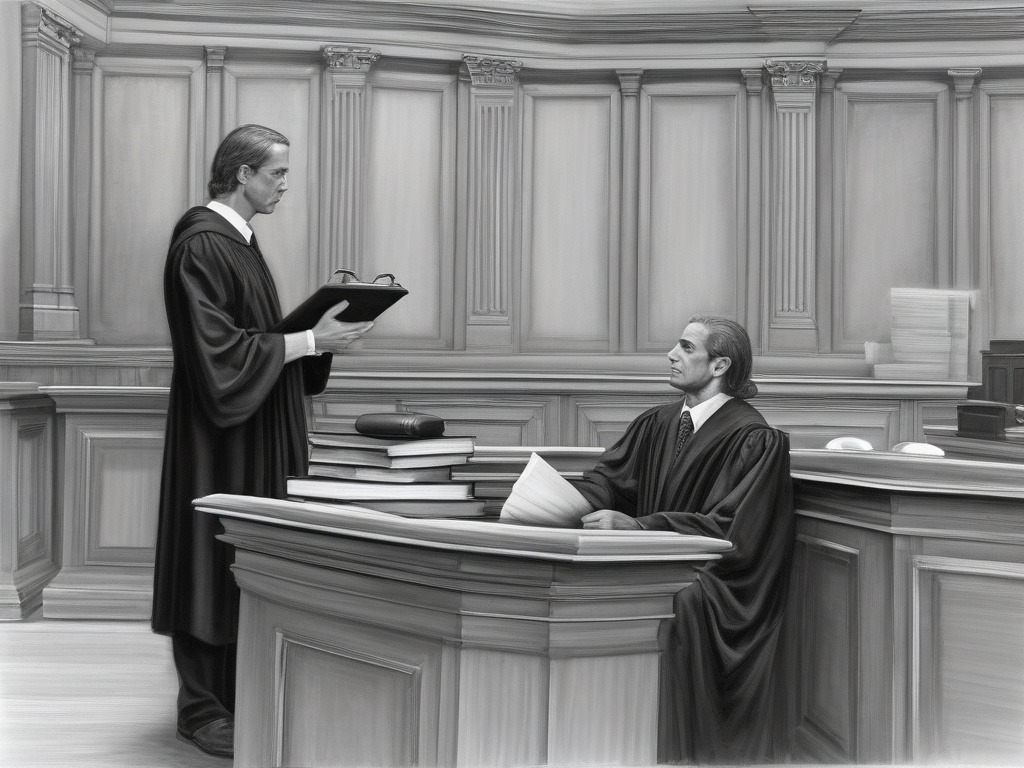
Unveiling Justice: How to Hold Police Accountable for Misconduct
Understanding Your Rights When Confronting Police Misconduct
In a society that values justice and accountability, knowing your rights when faced with police misconduct is essential. It’s crucial to recognize that the police do not have unchecked power; citizens are protected by laws designed to ensure transparency and fairness. Empowering yourself begins with understanding legal protections, documenting incidents meticulously, and knowing when and how to seek legal recourse. Whether it’s excessive use of force, unlawful searches, or misconduct during interrogations, your rights serve as the foundation for seeking justice. Be aware that filing complaints with oversight bodies or pursuing civil litigation are vital steps in holding officers accountable.
Pathways to Justice: From Filing Complaints to Civil Litigation
Taking action against police misconduct involves multiple pathways, each with its own significance. Starting with filing a formal complaint to the police department or internal affairs division is often the first step. These bodies investigate allegations, but their impartiality and effectiveness can vary. Therefore, many victims and their advocates opt for civil lawsuits as a more direct means of seeking accountability and compensation. Civil litigation allows victims to present evidence, challenge misconduct legally, and potentially secure damages that reflect the harm suffered. It’s important to recognize the distinctions between criminal charges against officers and civil suits; the former seeks punishment, while the latter aims for compensation and policy change. Consulting with legal professionals experienced in civil rights law is crucial to navigating this complex landscape effectively. By understanding these pathways and their strategic use, victims can actively challenge misconduct and work toward systemic change that upholds justice for all.
Legal Strategies to Fight Back: Your Rights When Police Violate the Law
When confronting police misconduct, understanding the arsenal of legal strategies available to you is crucial in asserting your rights and achieving justice. Victims often face a complex maze of legal avenues, but being informed about your options enables you to challenge wrongful actions effectively. The first step is recognizing that you have the right to seek accountability through civil litigation, which can serve as a powerful tool for both compensation and systemic change. Civil lawsuits can uncover patterns of misconduct, hold officers personally liable, and compel police departments to revise policies that contribute to abuse. Engaging experienced attorneys specializing in civil rights law is essential to navigate procedural hurdles, gather compelling evidence, and craft a case that resonates in court. Moreover, strategic use of discovery processes, depositions, and expert testimony can expose misconduct that might otherwise remain hidden. Remember, your legal fight is not just about individual redress but also about pushing for reforms that protect future citizens from similar violations.
Harnessing the Power of Civil Litigation in the Fight for Justice
One of the most effective legal strategies to combat police misconduct is pursuing civil litigation, which allows victims to challenge unlawful behavior directly in court. Unlike internal investigations, civil cases are independent and can lead to substantial damages that reflect the harm inflicted. These lawsuits can also serve as a catalyst for systemic change, prompting departments to overhaul policies or enhance training programs. The process often involves detailed documentation of incidents, witness testimonies, medical records, and video evidence, all of which bolster the case. Importantly, civil suits can be filed even if criminal charges against officers do not result in conviction, providing an alternative avenue to seek justice when criminal proceedings fall short. Building a strong case requires strategic legal planning, understanding of federal and state civil rights laws, and persistent advocacy to hold law enforcement accountable for their actions.
Challenging Misconduct Through Policy Advocacy and Public Pressure
Beyond courtroom battles, leveraging policy change and public awareness can significantly enhance your fight against police misconduct. Lawsuits often draw media attention, which can sway public opinion and compel officials to implement reforms. Engaging community organizations, advocacy groups, and civil rights activists amplifies your voice and sustains pressure on authorities. Many successful cases have led to policy revisions, such as stricter use-of-force protocols or increased oversight mechanisms. Legal strategies are more effective when combined with advocacy efforts that highlight systemic issues and demand accountability from elected officials. This multi-pronged approach not only seeks redress for individual victims but also aims to foster long-term change that safeguards civil liberties and prevents future violations. Whether through strategic litigation, public campaigns, or policy advocacy, your fight for justice becomes part of a broader movement challenging the culture of impunity within law enforcement agencies.
Empowering Victims: Navigating the Path to Justice Against Law Enforcement Abuse
Victims of police misconduct often find themselves at a crossroads, uncertain about how to challenge power and seek justice. Yet, understanding that legal avenues exist can be a game-changer. The journey toward accountability begins with awareness—knowing that you have the right to pursue civil action even when criminal charges against officers are not pursued or fail in court. This empowerment transforms victims from passive witnesses to active participants in the fight for justice, asserting their rights in a system that can sometimes seem impenetrable. Legal recourse is not only about compensation but also about sending a powerful message that abuse of authority will not be tolerated.
